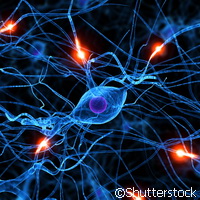Key discovery of protein that controls nerve cell protection
Neuroscientists in the United Kingdom have made an extraordinary new discovery that could lead to new therapies for stroke and epilepsy. The discovery involves a key protein that can regulate the transfer of information between nerve cells in the brain. When activated, it could protect neurons from damage during heart failure or epileptic seizure. This study was funded in part by a European Research Council (ERC) grant under the EU's Seventh Framework Programme (FP7), and was published in the journals Nature Neuroscience and PNAS. The proteins, which are known as SUMO, are responsible for controlling the chemical processes that reduce or enhance protection mechanisms for nerve cells in the brain. SUMO are in fact a family of small proteins that are chemically attached to and detached from other proteins within cells to modify their function. The SUMO proteins produce subtle responses to the brain's activity levels. This enables the regulation of information transmitted by kainate receptors. These kainate receptors handle all communication between nerve cells - activating them can lead to epileptic seizures and nerve cell death. Protein function is controlled by altering their structure in processes that can be independent or inter-related, including phosphorylation, ubiquitination and sumoylation. What the team discovered was that there is a fine balance between phosphorylation and sumoylation, and that sumoylation is dependent on brain activity levels. 'Sumoylation reduces kainate receptor function when the body is at risk of damage - during a stroke or an epileptic fit for example - and in doing so protects the nerve cells. The leaders of the research team are Professor Jeremy Henley and Dr Jack Mellor from the University of Bristol's Medical School (UK). Dr Mellor, a senior lecturer at Bristol's School of Physiology and Pharmacology, said: 'Kainate receptors are a somewhat mysterious but clearly very important group of proteins that are known to be involved in a number of diseases, including epilepsy. However, we currently know little about what makes kainate receptors so important. Likewise, we also know that SUMO proteins play an important role in neuroprotection. These findings provide a link between SUMO and kainate receptors that increases our understanding of the processes that nerve cells use to protect themselves from excessive and abnormal activity.' The researchers showed that phosphorylation of kainate receptors on its own promotes their activity. However, phosphorylation also facilitates sumoylation of kainate receptors that reduces their activity. Thus, there is a dynamic and delicate interplay between phosphorylation and sumoylation that regulates kainate receptor function. Professor Henley emphasised: 'This work is important because it gives a new perspective and a deeper understanding of how the flow of information between cells in the brain is regulated. The team has found that increasing the amount of SUMO attached to kainate receptors - which would reduce communication between the cells - could be a way to treat epilepsy by preventing over-excitation of the brain's nerve cells.'For more information, please visit:University of Bristol:http://www.bristol.ac.uk/Nature Neuroscience:http://www.nature.com/neuro/index.htmlPNAS:http://www.pnas.org/European Research Council (ERC):http://erc.europa.eu
Countries
United Kingdom



